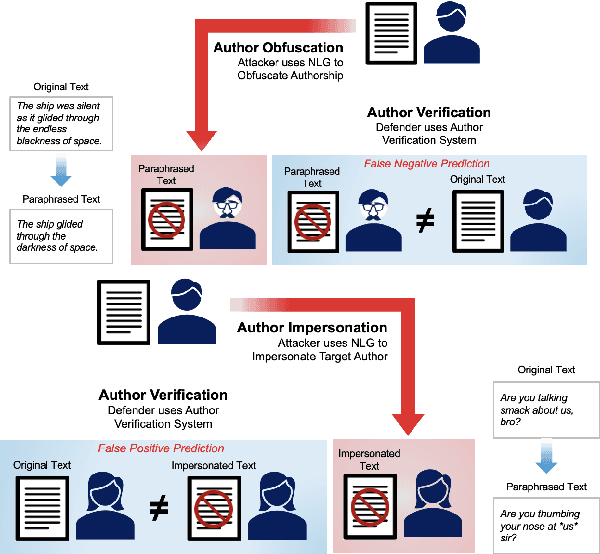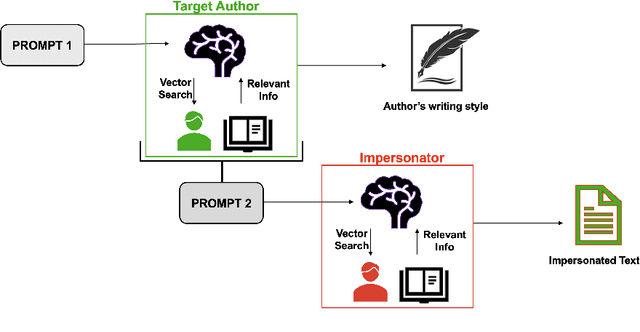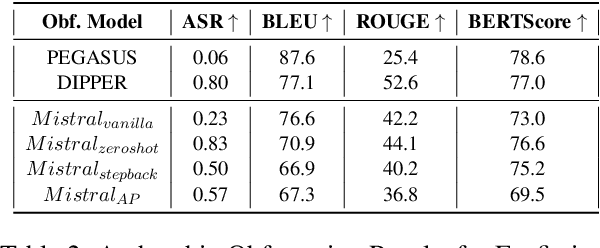Rohan Leekha
Masks and Mimicry: Strategic Obfuscation and Impersonation Attacks on Authorship Verification
Mar 24, 2025



Abstract:The increasing use of Artificial Intelligence (AI) technologies, such as Large Language Models (LLMs) has led to nontrivial improvements in various tasks, including accurate authorship identification of documents. However, while LLMs improve such defense techniques, they also simultaneously provide a vehicle for malicious actors to launch new attack vectors. To combat this security risk, we evaluate the adversarial robustness of authorship models (specifically an authorship verification model) to potent LLM-based attacks. These attacks include untargeted methods - \textit{authorship obfuscation} and targeted methods - \textit{authorship impersonation}. For both attacks, the objective is to mask or mimic the writing style of an author while preserving the original texts' semantics, respectively. Thus, we perturb an accurate authorship verification model, and achieve maximum attack success rates of 92\% and 78\% for both obfuscation and impersonation attacks, respectively.
 Add to Chrome
Add to Chrome Add to Firefox
Add to Firefox Add to Edge
Add to Edge